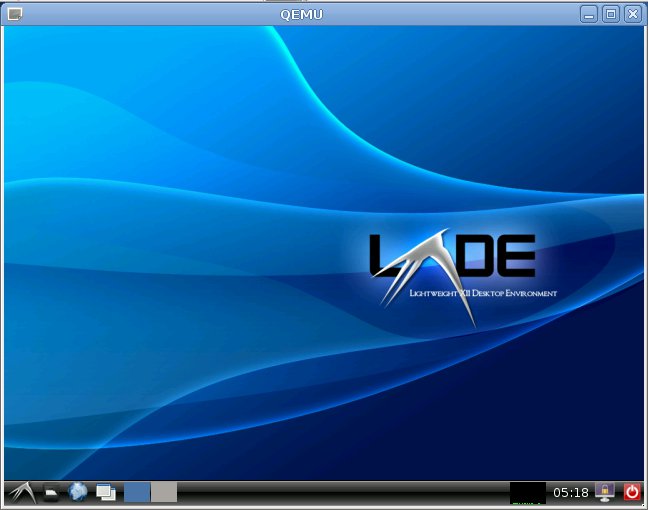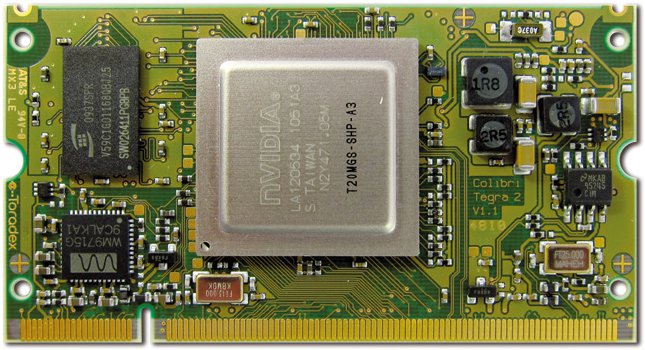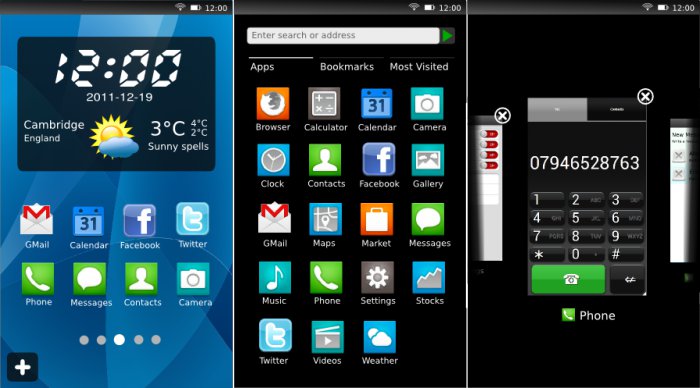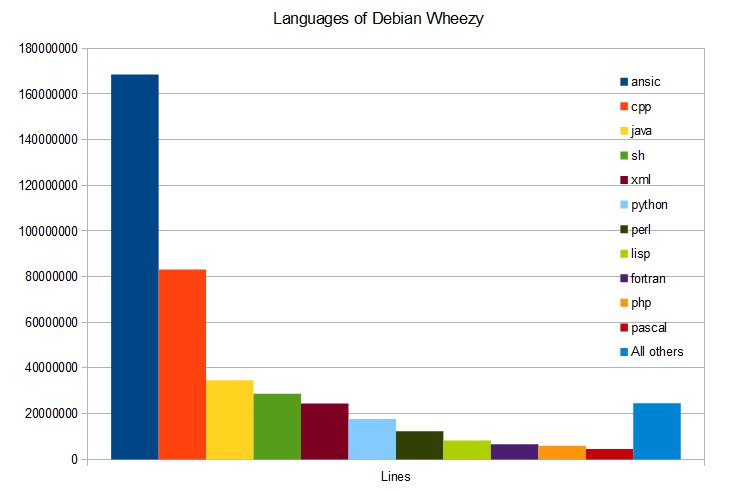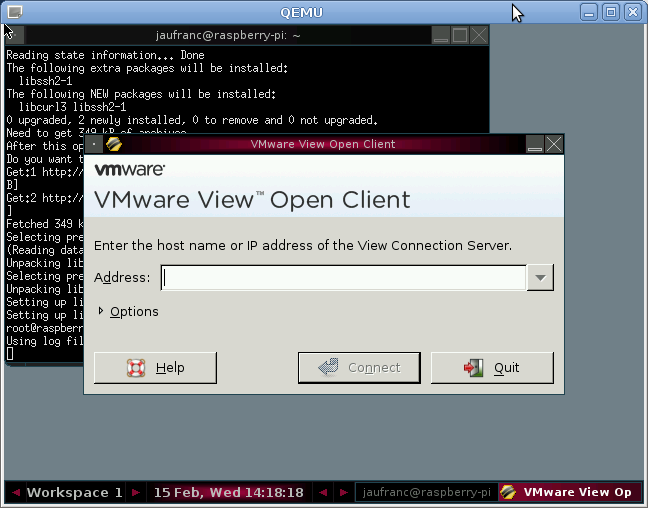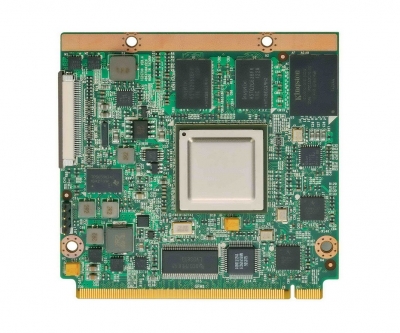As you may already know, Raspberry Pi has released their first SD card image with Debian. This morning, I explained how to use that image in qemu. I’ve been waiting for samples to take advantage of the power Videocore GPU inside Broadcom BCM2835 SoC used in the Raspberry Pi board and the goods news is that they added Hello World code samples in C to make use of those capabilities. The sample are located in /opt/vc/src/hello_pi directory: hello_audio – Audio output demo using OpenMAX IL through the ilcient helper library hello_triangle – A rotating cube rendered with OpenGL ES with 3 images used as textures on the cube faces. hello_video – Video decode demo using OpenMAX IL through the ilcient helper library You can either compile those samples in the board or cross-compile them in your host machine. Since you need the GPU, you will obviously not be able to […]
Raspberry Pi Releases 1st SD Card Image (Debian) – How-to use it in QEMU
The Raspberry Pi Foundation has just released the first SD Card Image that you will be able to use with your Raspberry Pi board. This image is based on Debian Squeeze (6.0) and comes with LXDE user interface and Midori browser, development tools, and sample code for accessing the multimedia functionality on the device. You can download it using BitTorrent: debian6-17-02-2012.zip.torrent (preferred method) or via one of the many http mirrors available on RPi Community page. This image contains all necessary files including the binary blob and closed source libraries, the kernel and the root file systems. If you want to to prepare an SD Card with this image simply use dd in Linux: unzip debian6-17-02-2012.zip sudo dd if=debian6-17-02-2012/debian6-17-02-2012.img of={sd_card_path} where sd_card_path is the device pointing to you SD Card (e.g. /dev/sdc). Make sure you use the correct device (e.g. with fdisk -l) or you may wipeout your hard drive […]
Toradex Will Unveil Colibri T30 Nvidia Tegra 3 COM at Embedded World 2012
Toradex, a Swiss technology company specialized in embedded systems, will be at Embedded World 2012 to showcase their products and technology including: An Embedded Computer Kit with Colibri T20 (Nvidia Tegra 2 Computer on Module) and Iris carrier board. Instant boot demo (480 ms) in WinCE with their NVidia COM The new Colibri T30 COM powered by Nvidia Tegra 3 (Quad-core Cortex A9 processor) At the conference, they will give away 100 Embedded Computer Kits (they also call it “Performance Kit”) based on Colibri T20 and Iris board to the attendees who give 20 Euros to the Red Cross. The regular price of this kit is 200 Euros. This embedded module comes preloaded with Windows Embedded Compact 7 , but you can download the Linux BSP and update the board firmware. The Colibri T20 key features include: Dual Core Nvidia Tegra 2 ARM Cortex A9 Processor @ 1 Ghz 256 […]
Mozilla Boot to Gecko (B2G) OS Is Coming to Your Smartphone
Mozilla, non-profit organization, well known for its Firefox web browser and Thunderbird mail client has recently moved to the mobile space with Firefox for Android browser for smartphones and tablets. However they intend to go even further by releasing a mobile operating systems named Boot to Gecko (B2G) competing directly with Android, iOS and Windows Phone. Mozilla mobile operating system will use web standards (like Tizen does) and the goal is to displace proprietary, single-vendor stacks for application development (e.g. Android, iOS, WP7). The OS itself will relies on the Linux kernel and some open source libraries and the B2G applications will be written using HTML5/Javascript/CSS3 standard. Basically, it will boot Linux and use the Gecko engine (like in Firefox) to render application in a way similar to what Google does with Chrome OS. The HTML5-based user interface of B2G is called Gaia and is a collection of web apps. […]
Debian is Worth a Lot (Yet it’s Free) and C/C++ Language Still Rules
James E. Bromberger (JEB) , a contributor to Perl CPAN and Debian, has estimated the cost of developing Debian Wheezy (7.0) from scratch based on the the number of lines of code (LOC) counted with SLOCCount tool, the Constructive Cost Model (COCOMO) and the average wage of a developer of 72,533 USD (using median estimates from Salary.com and PayScale.com for 2011). He found 419,776,604 lines of code in 31 programming languages giving an estimated cost of producing Debian Wheezy in February 2012 of 19 billion US dollar (14.4 Billion Euros), making each package source code (out of the 17,141 packages) worth an average of 1,112,547.56 USD to produce. He also estimated the cost of Linux 3.1.8 Kernel with almost 10 millions lines of source code would be worth 540 million USD at standard complexity, or 1.877 billions USD when rated as ‘complex’. I don’t know which tool he used for […]
Cross-compiling VMWare View for ARM Linux (in Debian/Ubuntu)
Earlier this month, I wrote an article about PCoIP Technology which shows an Android application (VMWare View) running on an OMAP4 Tablet displaying a Windows 7 desktop. This remote desktop technology relies on a powerful server to do the processing and thin clients (in that case Tablets) to display the desktop. Since only pixels are transferred any OS (supported by the server) could be displayed in the thin client. That made me wonder if there was an open source PCoIP client that could run on low end Linux client such as the Raspberry Pi. VMWare View Open Client provides just what we need, but is only available in source code so we need to cross-compile it for ARM or build it in an ARM machine. Today, I’ll show the instructions I followed to cross-compile it for ARM in Debian using Emdebian Toolchain. First download and extract VMware View Open Client […]
GreenBase GQ-3874 and CG-8148 TI ARM Cortex A8 QSeven Modules
GreenBase Technology has unveiled the GQ-3874 and GQ-8148 Qseven modules based on Texas Instruments Cortex A8 processors. The GQ-3874/8148 features a PCI-e slot, SATA, four USB, four UART, dual CAN bus, ARM Cortex A8 1GHz processor, and SGX530 3D graphics engine. The GQ-3874 – Qseven Module uses the following CPU and GPU: CPU – Texas Instruments Sitara AM3874 1GHz ARM Cortex-A8 MPU GPU – SGX530 3D Graphics Engine and the GQ-8148 – Qseven Module uses the following CPU, GPU, DSP and Video hardware accelerator: CPU – Texas Instruments DaVinci DM8148 1GHz ARM Cortex-A8 MPU GPU – SGX530 3D Graphics Engine DSP – Integra C674 750MHz DSP HDVICP2 Video Encoder/Decoder hardware accelerator Both boards share the following specifications: Memory & Storage Onboard DDR3 Memory 512MB/1GB Onboard eMMC Flash 4GB/8GB Qseven 230 pin Edge Connector with: 2 x GbE 1 x PCIe 1 x SATA 1 x HDMI 4 x USB 2.0 […]
Wayland Library: X11 Display Server Replacement for Linux
The X Window System has been implemented in Linux since the beginning and manages the graphical user interface of most Linux distributions, although some embedded systems do without X11 and use lightweight graphics libraries such as Nano-X, SDL, DirectFB etc… X11 is invisible to the end-user but does all the hard work needed to have Gnome, KDE and Unity user interfaces work properly and smoothly. However, in recent years, GNU/Linux desktop graphics has moved from having numerous rendering APIs talking to the X server which manages everything towards putting the Linux kernel in the middle with direct rending (e.g. OpenGL, VDPAU/VAAPI) with window systems taking the backstage. This new architecture provides a much-simplified graphics system offering more flexibility and better performance. The problem is that the X Window System is highly complex, a complexity that is not really needed with the newest version of the kernel. That’s where Wayland protocol comes […]



